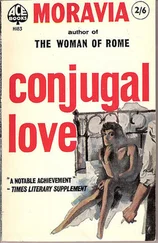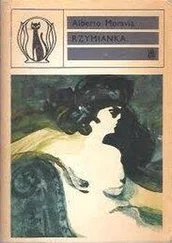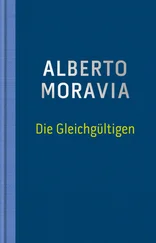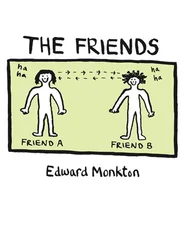This condition of inertia, discomfort, and shame
171
lasted until the end of the war. Sergio had not been called up, because he suffered from myopia, but he could not decide whether this was a blessing or a curse. Though from the beginning he considered the war to be unjust and a lost cause, taking arms would have at least meant doing something or, better yet, letting himself be swept up in something. The war dragged on, month after month, as merciless and inflexible as an illness that must run its course and will end only after it has exhausted its virulence. Sergio felt this illness in his blood, like a poisonous fever that precludes any struggle. He waited, like many others, for the war to reach its foregone and predetermined end. At times he asked himself why he had never reacted in some way even though he was aware of the true reasons behind the conflict, as well as its absurdity and the baseness and incompetence of the men who had driven the country to war and were now conducting it. But always he came to the same conclusion: “I can do nothing but be aware of the fact that I can do nothing.” His impotence was part of the air he breathed, a substance buried in the objects that surrounded him, in their appearance, in time itself. Later, he would remember those years — which after all had contained different seasons and climates — as one endless day, as when the scirocco blows and the colorless, cloudless sky weighs heavily on the rooftops. The air is opaque and stifling, without a whisper of wind, colors fade, and objects lose their shape and become part of an undistinguished morass, devoid of all potency or light, benign and disagreeable at the same time. He realized obscurely that for others, these years might have a quite different color: for example, for members of the regime, who had jumped into this increasingly desperate war; for its enemies, whose hope grew day by day. But he did not feel himself to be on one side or the other; even though he shared both desperation and hope, he could not find a real reason to chose one feeling over the other and join either side.
What tormented him the most, in addition to his
172
impotence, was his awareness of its profound causes. The truth was that even as he wished with all his might that the regime would crumble, even at the cost of a total disaster, he was upset — without quite knowing why — whenever the regime or one of its allies was defeated on the battlefield. He realized that the regime’s victories did not upset him as he would have wished them to. Quite to the contrary, each victory inspired an obscure, shameful sense of satisfaction. In other words, he both desired and did not desire the regime’s downfall, both hated and did not hate it. What he said out loud was not always true, and what he felt in the shelter of solitude was often in contrast with his words. He asked himself what could be the reason for this unconquerable duplicity, but he was unable to pinpoint its source. At the time, one of his younger brothers had been called up and was fighting with the Italian army on the Russian front. Whenever he was gladdened by a German victory in Russia, he wondered whether his affection for his brother — with whom he was very close — was the root cause of this contradictory, painful attitude. But he had to admit that the real motives were deeper and more obscure. In truth, as he had often suspected, he did not want the German armies to be defeated, because such a defeat would lead to disaster, a disaster he was not prepared to confront. Deep down, he preferred to go on living in this deceptive, bitter limbo, between disgust and impotence, and he knew that such a disaster would put an end to it, forcing him to take some sort of action. Yes, he thought to himself, he was this limbo, this malady, this ambivalence between one and another. This limbo, this malady, was his raison d’être, wretched and bitter as it was, but he had no other. And precisely because he knew that he could not find any other reason to justify his existence, he did not want the malady to end. All of this seemed to confirm Maurizio’s careless comment. Sergio reflected: “I am nothing but an intellectual of the worst sort, in other words a man who is aware of all the reasons for action and yet is incapable of acting.” Rereading Pascal’s Pensées , he came upon the great philosopher’s definition of man: That which distinguishes man from a clump of reeds
173
is the fact that the reeds do not know that they are being crushed and a man does. “Man is a thinking reed.” Bitterly, Sergio had concluded that there was no better description for him. But it seemed to him that Pascal was mistaken about one thing: a thinking reed, in Sergio’s opinion, was far inferior to a simple reed. Not thinking was better than thinking without acting.
At home, everyone took him for a dyed-in-the-wool anti-Fascist. His family, who was not Fascist while at the same time not daring to be anti-Fascist, did its best to avoid political discussions, never referring to the war or the political situation in Sergio’s presence. He knew that his mother and father and two sisters would have been saddened by any anti-Fascist declarations from him because they loved his brother, who was fighting in Russia, and feared for his life. They simply wanted him to come home, and they knew that a defeat would impede his return. So he was silent. And still, he felt tossed around by his own impotent duplicity, like a fragile vessel buffeted by a tempestuous sea. On the rare occasions when he met with one of his very few remaining friends, he spoke of his desire for a German defeat. But as soon as he was alone, he realized with profound self-contempt that when he read the papers and saw that defeat seemed more and more inevitable and imminent, he felt a pang of disappointment and bitterness. This ambivalence vexed and disgusted him and inspired in him a gradual, funereal melancholy, as if he were suffering from an unnamable, mysterious disease for which there is no known cure.
Sometimes he asked himself, “So, then, does this
174
mean I am on the other side? Am I a supporter of the regime?” He tested himself to see if his suspicions were justified. But as soon as he was in the company of Fascists, he felt something stronger than repulsion, almost hatred. Not a single one of their arguments was convincing — quite to the contrary. He was utterly incapable of cheering during military parades or speeches by Fascist officials; these displays felt like a bitter medicine, which nothing in the world could force him to swallow. When he spent time with someone who approved of or defended the regime, he experienced a deep, irrepressible discomfort, as if in the presence of a lie that must be combated at all costs. In other words, he was an anti-Fascist, at least in the presence of Fascists. But when he found himself in the company of a group of stalwart anti-Fascists, like the young men, around his age, who met sometimes in a neighborhood café, he felt only a halfhearted enthusiasm for their declarations. He did not dislike them as much as he did the Fascists, or rather he liked them while at the same time feeling a mix of envy and discouragement. Though he agreed with what they said, he did not experience the kind of heartfelt ardor that melts away the many layers of intelligent thought to become a clear conviction. He tried to attribute this lack of conviction to external causes like the fact that his brother was fighting in Russia. But the truth was that this was simply his nature; he was convinced that he would have shown a similar lack of conviction no matter what the circumstances. His heart was frozen and his mind could express only doubts.
As time passed, the military situation worsened. Sergio noticed that the momentous, catastrophic news that appeared in the papers inspired no noticeable rumblings inside of him. The day Fascism fell, a day so intensely desired and awaited, he lay on
Читать дальше












